What Are Eye Floaters | How to Treat Eye Floaters Naturally
Imagine looking up at a clear blue sky or a blank white screen and noticing odd little shapes floating in your field of view. These squiggly lines or rings that play tag with your gaze are known as eye floaters. They often trigger curiosity—what are eye floaters and can they be treated naturally?
Many people are interested in eye floaters treatment and relief, especially as they become more common with age. Most eye floaters are harmless but can be distracting. Sometimes, a change in their pattern could signal a health issue. So, finding natural ways to treat eye floaters is important for those looking for safe solutions.
Eye floaters are tiny flecks of collagen in the vitreous, the gel-like substance in our eyes. They appear because light passes through these flecks and casts shadows on the retina. To reduce eye floaters, focus on hydration, nutrition, managing screen time, and getting enough rest and sleep.
The natural treatment for eye floaters can include supplements like Zinc and Omega-3 fatty acids. Hyaluronic acid eye drops are also suggested for their anti-inflammatory benefits and potential to dissolve eye floaters. Natural eye care is becoming more popular, offering hope for clear vision.
Eye floaters might be confusing at first, but they usually don’t affect daily life. Whether you’ve just noticed your first floater or have had them for a while, understanding how to manage them is key. Let’s delve into the world of eye floaters and see how natural methods can help.
Understanding Eye Floaters: An Overview
Eye floaters are small, shadowy shapes seen in the field of vision. They are a common eye condition called myodesopsias. These shapes are noticed against bright backgrounds and can look like dots, lines, or cobwebs. They move with eye movement.
Learning about eye floaters helps us understand the eye’s inner workings. It shows how the vitreous humor and age-related changes are connected.
Definition of Eye Floaters
Eye floaters are tiny clusters of collagen in the vitreous, the eye’s gel-like substance. As we age, these fibers clump together. This creates shadows on the retina, which we see as floaters.
Common Symptoms and Appearances
People with myodesopsias see different shapes and sizes of floaters. They can be transparent or gray/black. These are more noticeable in bright light or against a plain white background.
Some also see flashes of light, called photopsias. This happens when the vitreous pulls on the retina.
The Aging Process and Vitreous Changes
With age, the vitreous humor degenerates. It shrinks and becomes more liquid, a process called vitreous detachment. This increases the chance of getting more floaters.
Vitreous detachment is a main cause of eye floaters, especially in people over 50. While it’s mostly linked to aging, younger people can also get it from high myopia or trauma.
Understanding eye floaters and their causes is key. It helps manage this issue and know when it might be a sign of a serious eye problem.
Causes and Risk Factors of Eye Floaters
It’s important to know why eye floaters happen. They are mainly due to aging changes in the eye’s gel. But, health issues and lifestyle choices can also play a part.
The Role of Vitreous Detachment
Posterior vitreous detachment, or PVD, is a big reason for eye floaters. It happens when the eye’s gel changes with age and pulls away from the retina. A sudden, big floater in the middle of your vision is a sign of this, especially for people over 50.
This detachment is usually not serious. But, it can sometimes cause problems that need close watching and care.
Other Contributing Eye Conditions
While aging is a big factor, other health problems can also lead to floaters. People with high nearsightedness often see more floaters because their eye gel shrinks faster. Eye injuries, diabetes, retinal tears, and inflammatory diseases can also cause changes in the eye gel.
Getting regular eye exams is key. They help catch any changes early and prevent worse problems.
To lower the chance of getting eye floaters, prevention is key. Quitting smoking, managing health issues like diabetes, and wearing protective gear during activities that could hurt your eyes are all important steps.
Are Eye Floaters a Sign of a Serious Health Issue?
Eye floaters are small shadows or shapes that move in your vision. They are common in adults over 60. But, they can sometimes show serious eye health problems.
When to Seek Medical Attention for Floaters
Most of the time, a few stable floaters don’t need eye floaters treatment. But, if you see more floaters suddenly, especially with flashes or vision blocks, see a doctor fast. This could mean a detached retina, which can cause permanent vision loss if not treated.
Floaters that come on quickly might mean the vitreous gel in your eye is pulling away from the retina. This could cause retinal tears.
Distinguishing Harmless Floaters from Alarm Signals
Occasional floaters are usually okay. But, knowing when they might mean serious eye disorders is key. If you have eye pain or big light flashes with floaters, it’s a sign of a bigger problem. You might need eye floaters removal right away.
Treatments depend on the cause. They can range from watching and waiting to surgery like vitrectomy or laser vitreolysis. These are for denser cases to clear your vision.
Getting regular eye exams is important. They help catch eye problems early. Early action can prevent serious damage. So, don’t ignore changes in your eye floaters.
How to Treat Eye Floaters Naturally
Many people look for natural remedies for eye floaters to avoid surgery. Making lifestyle and diet changes can help reduce eye floaters naturally. Eating foods rich in antioxidants like vitamins A, C, and E, zinc, and omega-3 fatty acidsis good for your eyes. These nutrients can help manage and possibly reduce floaters.
Drinking enough water is also key to treat eye floaters at home. It keeps the eye’s gel-like substance healthy, which might reduce floaters. Getting enough sleep and taking breaks from screens can also help. Wearing UV-blocking sunglasses protects your eyes from more irritation.
Being patient is important, as most eye floaters fade over time without treatment. Getting an annual eye exam helps keep an eye on your eye health. By managing your lifestyle, you can handle eye floaters better, improving your vision and life quality.
Nutrition and Hydration’s Impact on Eye Health
Good eye health is not just about regular eye exams and glasses. It also depends on what we eat and drink every day. Eating the right foods and staying hydrated can make a big difference in how well our eyes work.
Key Vitamins and Minerals for Eye Support
Eating foods rich in vitamins A, C, and E is key for healthy vision. These vitamins fight off damage that can harm our eyes. They help prevent diseases like eye floaters.
Zinc is also important for eye health. It helps keep the retina healthy and can improve night vision. Omega-3 fatty acidsin fish like salmon are great for the eyes too. They keep the blood vessels in the eyes healthy and can prevent dry eyes and cataracts.
Zinc is a hero for the eyes. It helps move vitamin A to the retina, where it makes melanin. This pigment protects the eyes. Taking zinc supplements with vitamins A, C, and E can help fight age-related vision problems.
The Importance of Staying Hydrated
Drinking enough water is crucial for eye health. The eye has a lot of water, and staying hydrated keeps it working right. Drinking at least eight glasses of water a day helps keep the eyes in shape.
Good eye health needs a healthy diet and enough water. Eating foods rich in omega-3s, zinc, and vitamins A, C, and E helps. It also helps prevent eye problems like floaters.
Lifestyle Adjustments to Manage Eye Floaters
To manage eye floaters, making lifestyle changes is key. These changes help directly with floaters and improve eye health overall.
Rest and Adequate Sleep for Eye Health
Healthy sleep habits are vital for eye health, especially with eye floaters. Getting enough sleep each night helps reduce eye strain. This can lessen the severity and visibility of floaters.
Sleep lets your eyes rest, heal, and stay hydrated. It minimizes floater appearance and promotes better vision.
Minimizing Eye Strain from Digital Devices
In today’s world, digital eye strain is a big issue, thanks to more screen time. Following the 20-20-20 rule helps a lot. It means taking a 20-second break to look at something 20 feet away every 20 minutes.
Also, make sure your spaces are well-lit to avoid glare on screens. Adjusting your screen’s brightness and contrast can prevent eye fatigue. This helps manage floater symptoms.
By improving healthy sleep habits and reducing digital eye strain, you can greatly enhance your eye health. This makes managing eye floater symptoms easier.
Natural Remedies and Techniques to Reduce Eye Floaters
Looking for ways to prevent eye floaters? Exploring natural remedies for eye floaters can help. While you might not get rid of them completely, a holistic approach can manage them well. This includes using dietary supplements and practicing eye protection.
Dietary Supplements like Ginkgo Biloba and Omega-3s
Dietary supplements are a popular choice for eye floater relief. Ginkgo biloba and omega-3 fatty acids are known for improving blood flow to the eyes. They don’t get rid of floaters, but they support eye health and might make them less noticeable.
Proper Eye Protection and Sunglasses
Protecting your eyes is key in preventing eye floaters. Wearing sunglasses with UV protection is vital when you’re outside. They shield your eyes from the sun and other harmful elements.
Using these natural methods can help manage eye floaters. They support eye health and overall well-being. Always talk to a healthcare provider to find the best way to handle eye floaters.
Alternative and Supportive Therapies for Eye Floaters
Many people deal with eye floaters, and finding relief can mean trying new approaches. Hyaluronic acid eye drops and eye health exercises are being looked at for their benefits. They might offer comfort and support for those with this common issue.
Utilizing Hyaluronic Acid Eye Drops
Hyaluronic acid eye drops are often used after surgery to reduce eye swelling. Some think they might help with eye floaters relief too. But, more research is needed to confirm this. It’s important to talk to an eye doctor before trying new treatments to make sure they’re right for you.
The Role of Eye Exercises and Compresses
Doing eye health exercises can help with eye floaters too. These exercises might improve blood flow around the eyes, easing symptoms. Warm or cold compresses can also help right away. These simple steps can be part of your daily routine to keep your eyes healthy.
Starting these alternative methods needs careful guidance. Always check with a healthcare provider to make sure they’re safe and right for you.
Conclusion
Eye floaters are small, gray or black shapes that move in your vision. They happen as we age or after eye injuries or surgeries. While they’re usually not harmful, they can be very annoying, especially if they block your view.
It’s important to know the difference between harmless floaters and those that might mean a bigger problem. Signs of trouble include light flashes, streaks, or vision loss. These need quick medical help.
At home, there are many ways to deal with eye floaters. Regular eye exams help catch problems early. Foods full of antioxidants like Vitamin C, Zinc, and Selenium can help keep your eyes healthy.
In serious cases, a doctor might suggest a vitrectomy to clear your vision. But, this surgery has risks. People often choose to live without floaters, showing how much they affect our lives.
By eating right, living healthy, and seeing an eye doctor, you can keep your eyes in top shape. This helps manage floaters and keeps your vision clear.
FAQ
What Are Eye Floaters?
Eye floaters are small, shadowy shapes seen in your vision. They are clumps of gel or cells in the vitreous, the clear fluid in your eye. They look like dots, lines, or blobs, especially against bright backgrounds.
How Can I Treat Eye Floaters Naturally?
There’s no surefire natural cure for eye floaters. But, you can try a few things. Eat a balanced diet, drink lots of water, and get enough sleep. Also, take breaks from screens and wear sunglasses to protect your eyes.
Can Nutrition and Hydration Impact Eye Floaters?
Yes, what you eat and drink is key to eye health. Foods rich in vitamins A, C, E, zinc, and omega-3s help your eyes. Drinking water keeps the vitreous healthy.
Are Floaters a Sign of a Serious Health Issue?
Usually, floaters are harmless and come with age. But, if you see more floaters, flashes, or vision loss, it could be serious. See a doctor right away.
What Lifestyle Changes Can Manage Eye Floaters?
To manage eye floaters, try a few changes. Sleep well, use the 20-20-20 rule for screens, and control light. These can make floaters less noticeable.
What Role Does Eye Protection Play in Preventing Eye Floaters?
Wearing sunglasses with UV protection helps shield your eyes from the sun. This can reduce irritation from floaters. It also helps prevent new floaters from forming.
Can Dietary Supplements Like Ginkgo Biloba and Omega-3s Reduce Eye Floaters?
Some people think supplements like Ginkgo Biloba and Omega-3s help eye health. But, there’s no solid proof they cut down on floaters. A balanced diet might be better.
Are Hyaluronic Acid Eye Drops Effective for Eye Floaters?
There’s not much science backing hyaluronic acid eye drops for floaters. They’re mainly for post-surgery inflammation. Some people find relief, but talk to an eye doctor first.
How Do Eye Exercises and Warm/Cool Compresses Help With Floaters?
Eye exercises and warm or cool compresses can ease floater discomfort. They’re part of a broader eye health plan. But, they won’t get rid of floaters.
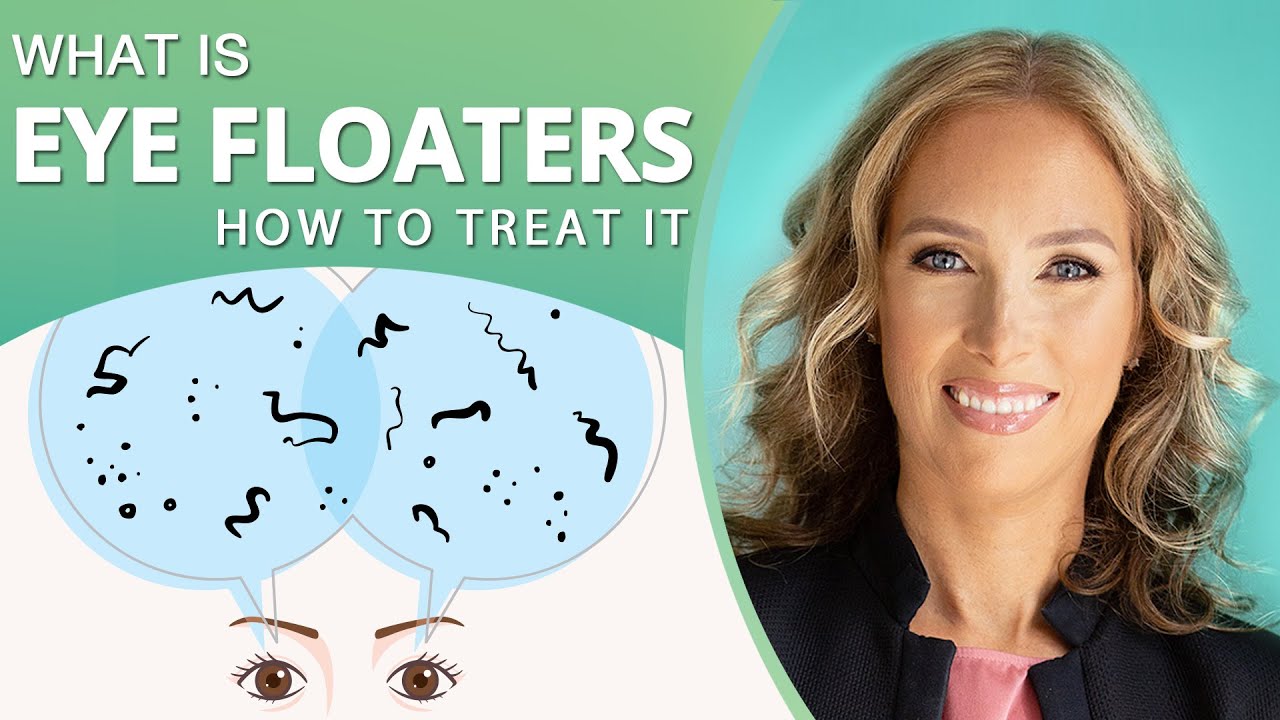

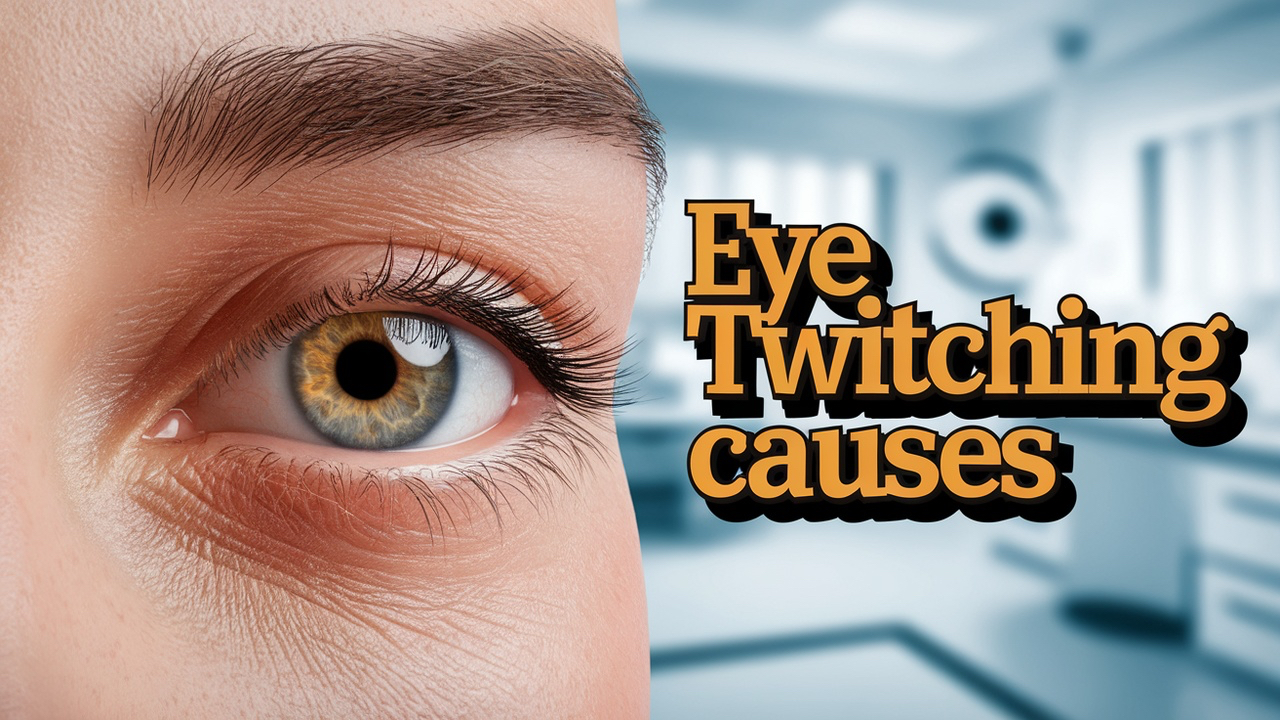
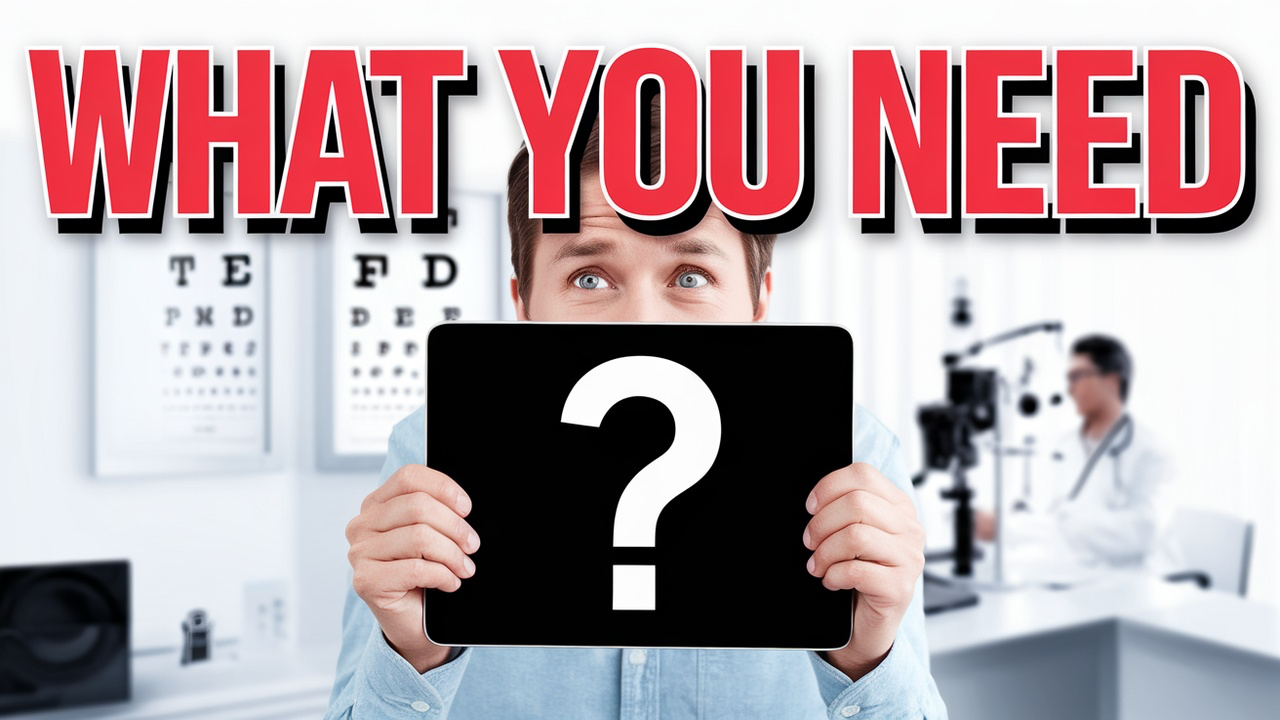
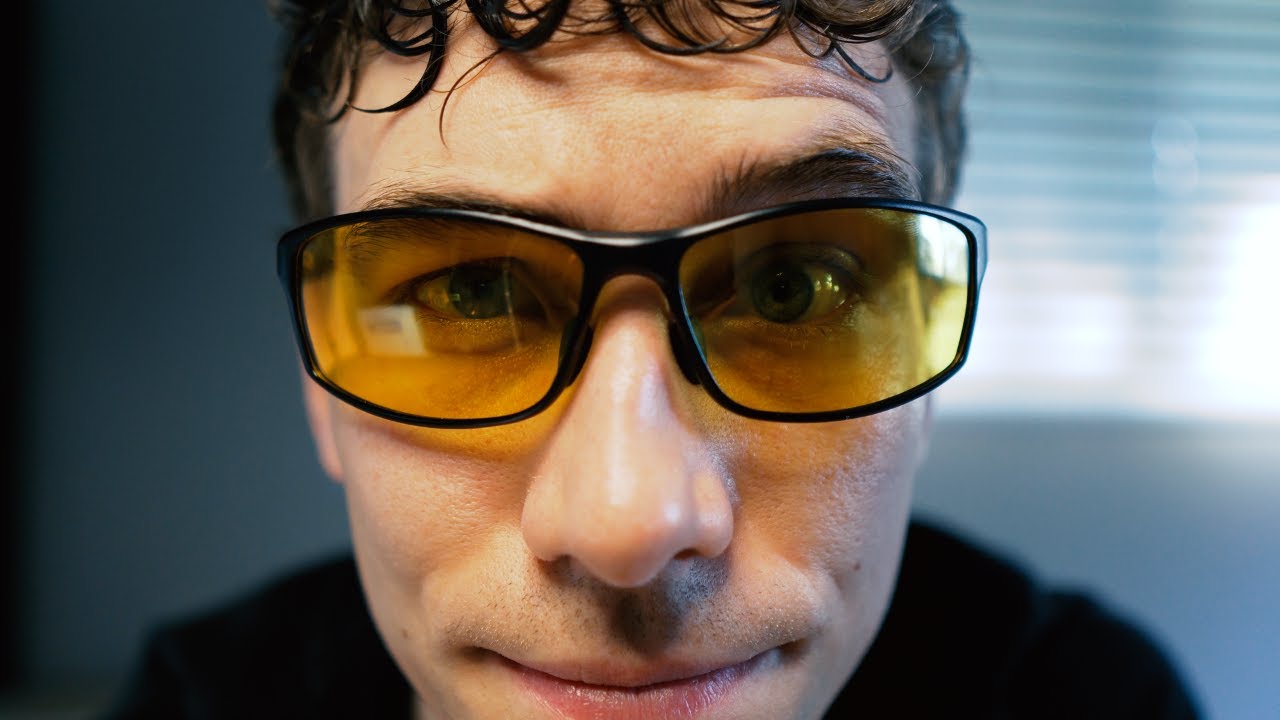
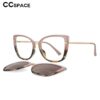
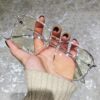

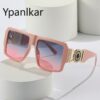
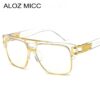
Hi dr. Janine,I don’t mean to be out of line but did you check your thyroid?I see something on your neck.
Yes it seems inflammated
Thank you this is awesome went to my eye dr and they said nothing can be done about eye floaters I will try all this :))
Best of luck!
I have floters and in night i will find high street light
I’m from Bangladesh & I’m now 28.
I have multiple concretions in both my eyes. Now it gets sweat in the left corner of my left eye. I have some floaters also which bother me much.
Doctor gave me 2 drops to remove those concretions, but still now I feel these concretions. These concretions have been bothering me since 8 months.
Would you pls give me some suggestions how can I get rid of it??? ???
We suggest Eye & Vision
and Fish Oil
Thank you,
Team Dr. J9
Awesome. Thank you Dr. Janine. I am enjoying early results from using your Eye & Vision supplement. I understand that like myself you are a born-again believer in the Lord Jesus Christ. Is that correct?
Wonderful!
Thank you for this info! I have a lot of floaters in my left eye since 2 months..eye doctor says my eyes are healthy. I am trying to deal with it and try to stay positive, are there are many things far worse! Greetings from the Netherlands
Eating pineapple may help
….. thanks for the tips
Thank you Dr. I recently travelled abroad to my country, South Sudan. The sun really helped me.
Splash water on your eye(s) 3-4 times at one go and tilt your head back after each splash. Do it everyday and your eye floaters will minimize. Jesus’s miracle.
I will try it
Please tell us good treatment of floters
Can u plz provide us good medicine for eye floater and can you plz tell us name of the medicine and price
this is a more how not to get floater insteed of a treatment
Hello, thanks for these tips. My eye Dr was very disheartening about them. Have you heard about putting castor oil in your eyes for floaters? What are your thoughts on this practice, in addition to your other tips? Thank you.
Thank you for the video.
The links for the supplements do not work.
Thanks for the feedback, we are looking into the links issue now.
Very misleading. The Vitreous is an enclosed area of the eye. Nothing can get inside or go outside of it therefore there is literally no medication, drops, exercises, etc to get rid of them. There are ONLY two possible solutions. 1. YAG laser where they try to laser out the floaters. 2. Vitrectomy where they have to actually go inside your eye and vacuum them out.
Unfortunately, many eye doctors don’t take floaters seriously and are quick to dismiss you. There ARE sympathetic doctors out there you just have to find one.